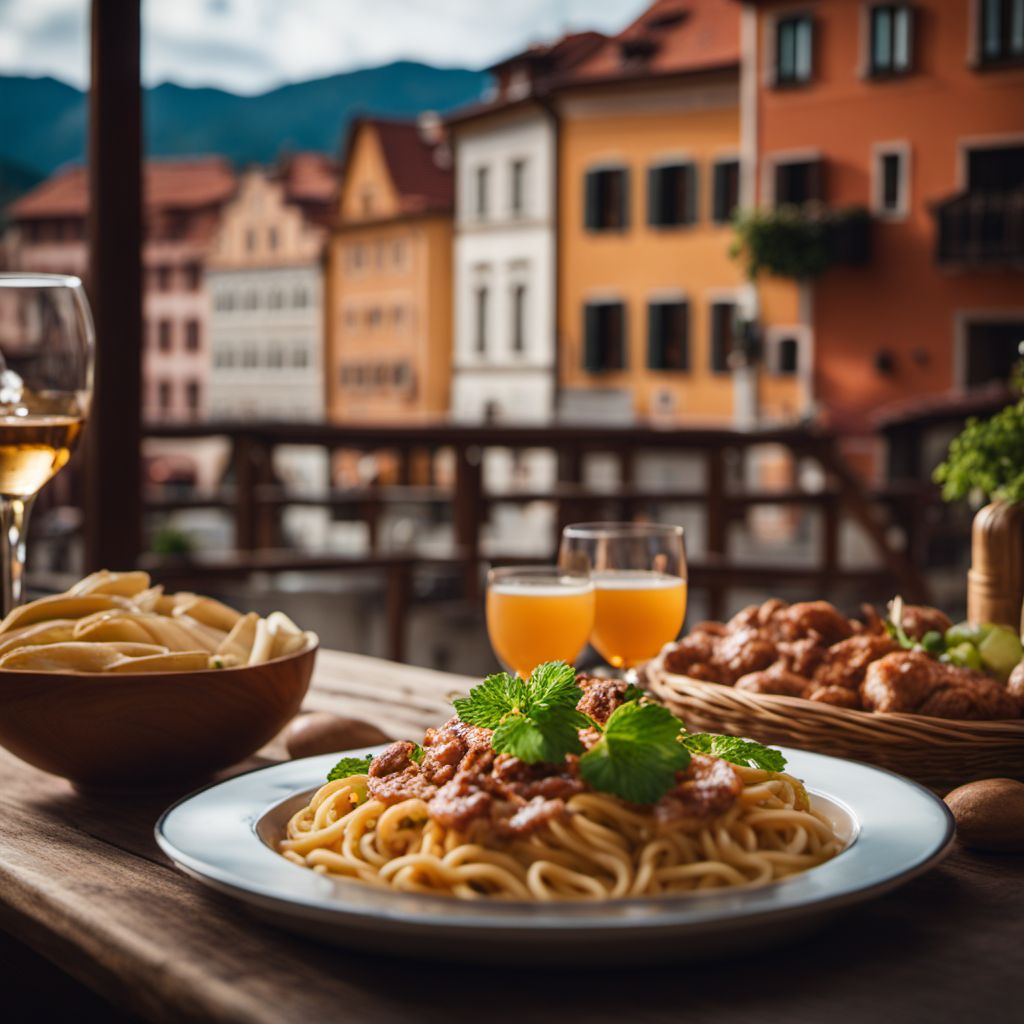
Cuisine
Slovenian cuisine
Slovenian cuisine is a reflection of the country's history and geography. It is characterized by its use of simple, hearty ingredients and traditional cooking methods. Meat, potatoes, and cabbage are staples in many dishes, and soups and stews are popular. Slovenian cuisine has been influenced by neighboring countries such as Italy, Austria, and Hungary, as well as historical events like World War II and the communist era. Despite these influences, Slovenian cuisine has maintained its unique identity and is beloved by many.
Typical ingredients
Potatoes, Cabbage, Beets, Carrots, Onions, Garlic, Pork, Beef, Chicken, Kielbasa, Sauerkraut, Mushrooms, Dill
Presentation and garnishing
Slovenian dishes are often served in large portions and are meant to be filling and satisfying. They are often garnished with fresh herbs like dill and parsley, and sour cream is a common topping. Presentation is not as important as flavor and comfort.
Slovenian cuisine includes many traditional dishes such as jota, a soup made with sauerkraut, beans, and potatoes. Another popular dish is idrijski zlikrofi, a type of dumpling filled with potato and bacon. Slovenian cuisine also includes a variety of meat dishes, such as kranjska klobasa, a type of sausage.
More cuisines from this region...
Hungarian cuisine, Slovak cuisine, Polish cuisine, Swiss cuisine, Austrian cuisine, Czech cuisine, Liechtensteiner cuisine
History
Slovenian cuisine has a long and rich history, dating back to the Middle Ages. It has been shaped by the country's geography, with its cold climate and fertile soil. The cuisine has also been influenced by neighboring countries, including Italy, Austria, and Hungary. During World War II and the communist era, food shortages and rationing led to the development of new dishes and creative ways of using available ingredients. Today, Slovenian cuisine is celebrated for its hearty and comforting dishes, as well as its rich history and cultural significance.
Cultural significance
Slovenian cuisine is an important part of the country's cultural heritage. Many traditional dishes are associated with holidays and special occasions, and are passed down through generations. Food is also an important part of social gatherings and family life. Slovenian cuisine has also gained popularity around the world, with Slovenian restaurants and food festivals popping up in many countries.
Health benefits and considerations
Slovenian cuisine can be high in calories and fat, so it is important to enjoy it in moderation. However, many traditional dishes are also rich in nutrients like protein, fiber, and vitamins. Cabbage, for example, is a good source of vitamin C and fiber. Slovenian cuisine also emphasizes the use of fresh, whole ingredients.
Slovenian cuisine dishes Browse all »

Pohorc
Pohorc is a traditional Slovenian dish that is typically served during the winter months. It is a hearty and warming dish that is perfect for cold days.

Strudelj
Strudelj is a traditional Croatian pastry that is typically filled with apples and cinnamon. It is a sweet and flaky pastry that is perfect for dessert or a midday snack.
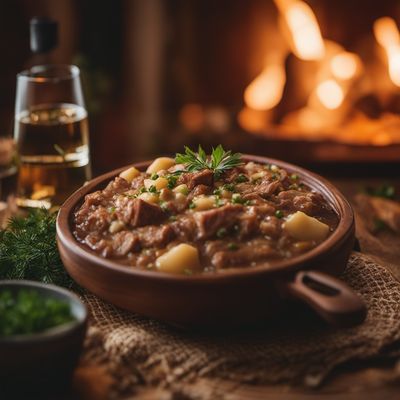
Mastel
Mastel is a traditional Slovenian dish that is typically served as a main course. It is a hearty meat and potato dish that is perfect for cold winter nights.

Pohorska omleta
Pohorska omleta is a traditional Slovenian dish that is perfect for breakfast or brunch. It is a savory omelet that is filled with potatoes, onions, and bacon.

Kranjska klobasa
Kranjska Sausage
Kranjska klobasa is a Slovenian sausage made from pork and bacon, flavored with garlic and pepper. It is a popular dish in Slovenia and neighboring countries.

Belokranjska pogača
Belokranjska Pogaca
Belokranjska pogača is a traditional Slovenian flatbread that is often served as a side dish. It is made by mixing flour, water, and salt, and then rolling out the dough into a...

Hajdina kaša
Buckwheat Porridge
Hajdina kaša is a traditional Hungarian dish made from buckwheat groats. It is a hearty and nutritious dish that is often served as a side dish or as a main course.

Gorički gulaš
Slovenian Pork and Potato Stew
Gorički gulaš is a traditional Hungarian beef stew that is made with paprika, onions, and potatoes. It is a hearty and flavorful dish that is perfect for cold winter nights.
Slovenian cuisine recipes Browse all »
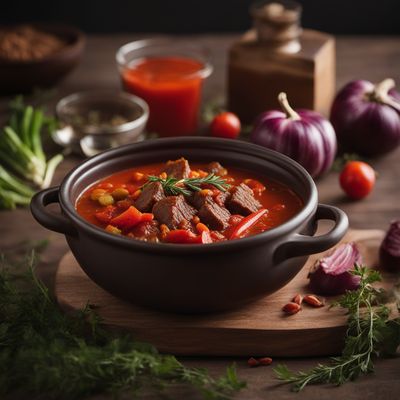
Babenda with a Slovenian Twist
Slovenian Babenda: A Hearty Delight with a Local Touch
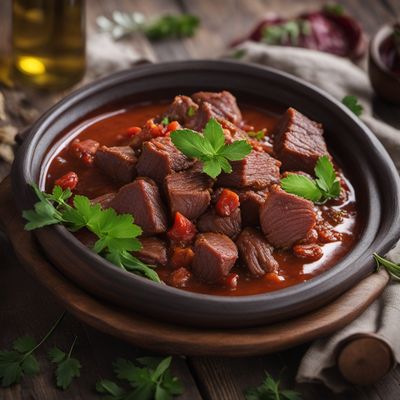
Slovenian-style Rustida
Slovenian Delight: A Flavorful Twist on Rustida

Zesty Zavezanci Delight
Slovenian Savory Stuffed Pancakes

Slovenian Repe with a Twist
Creamy Potato Delight: A Modern Take on Slovenian Repe

Pohorska Gibanica - A Delightful Slovenian Pastry
Layers of Delight: Pohorska Gibanica - A Slovenian Pastry Masterpiece

Slovenian-inspired Turkey Cutlets with Mushroom Sauce
Savory Delight: Slovenian Turkey Cutlets with Mushroom Medley

Prekmurska Gibanica - Traditional Slovenian Layered Cake
Layers of Delight: A Sweet Journey through Prekmurje
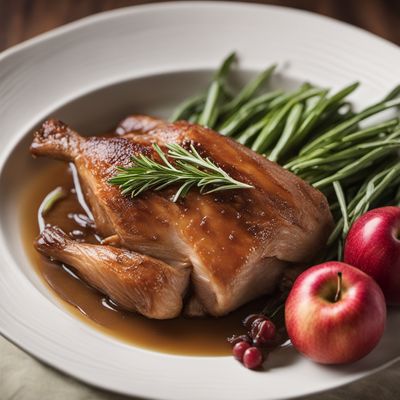
Roasted Duck with Honey-Glazed Apples
Slovenian Delight: Roasted Duck with Sweet Honey-Glazed Apples

Slovenian Style Potato Dumplings with Savory Sauce
Hearty Čompe: Slovenian Potato Dumplings with a Flavorful Twist

Ruske Kape - Slovenian Chocolate Meringue Cake
Decadent Delight: Slovenian Chocolate Meringue Cake

Kostelski želodec with Herbed Potato Salad
Savory Stuffed Pork Stomach with Fragrant Herbed Potato Salad

Prleška Gibanica - Slovenian Layered Pastry
Slovenian Delight: Layers of Flavor in Prleška Gibanica